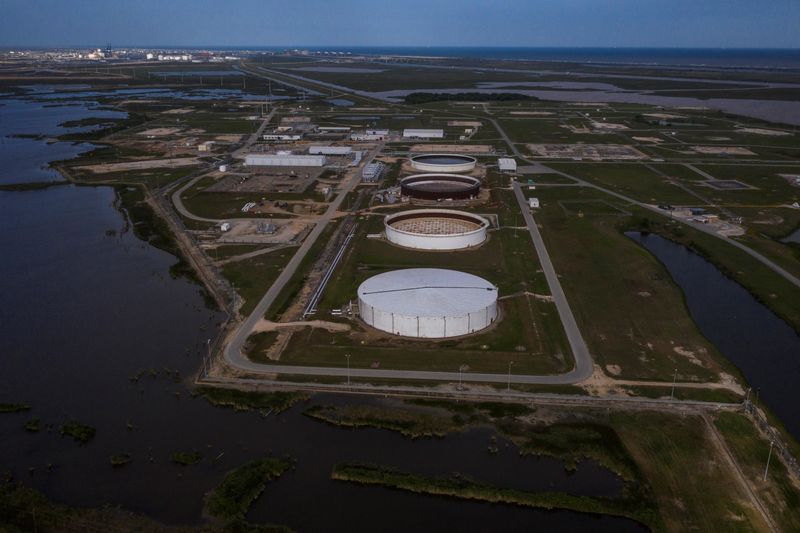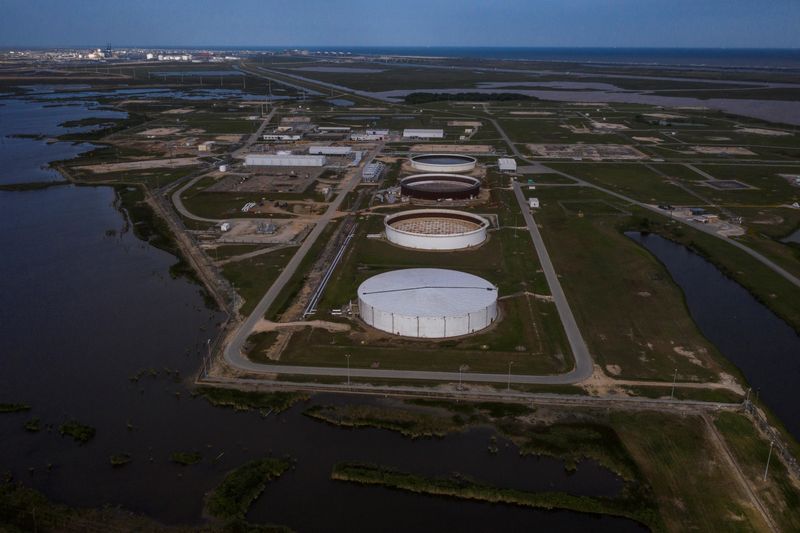Commodities
Oil prices rebound from multi-month lows on Mideast tensions

By Paul Carsten
LONDON (Reuters) -Oil prices bounced back from multi-month lows on Wednesday on concerns that an escalating conflict in the Middle East could hurt oil production, even as worries about weak crude demand persisted.
futures were up $1.10, or 1.4%, to $77.58 a barrel at 1055 GMT. U.S. West Texas Intermediate crude was up $1.05, also 1.4%, to $74.25.
On Monday, Brent futures slumped to their lowest since early January and WTI futures touched their lowest since February, as a global stock market rout deepened on concerns of a potential recession in the United States after weak jobs data.
“Whether the reversal in risk asset prices will prove to be a mere bottom-picking before the sell-off continues or investors have taken the time to thoroughly assess the medium-term implications of the U.S. job data is open for debate,” said Tamas Varga of oil broker PVM.
Both oil benchmarks broke a three-session declining streak on Tuesday, and tensions in the Middle East continued to stoke supply concerns in Wednesday’s trading session.
The Middle East is bracing for a possible new wave of attacks by Iran and its allies following last week’s killing of senior members of militant groups Hamas and Hezbollah, with concern rising that the conflict in Gaza is turning into a wider Middle East war.
U.S. officials have been in constant contact with allies and partners in the region and there is a “clear consensus” that no one should escalate the situation, Secretary of State Antony Blinken said on Tuesday.
“Any escalation of the conflict in the Middle East could see a greater risk of disruptions to supplies from the region,” ANZ analyst Daniel Hynes said.
Prices slipped earlier in Wednesday’s trading session, following U.S. data showing an unexpected build in crude oil and gasoline inventories.
oil, gasoline and distillate inventories rose last week, according to market sources citing American Petroleum Institute figures on Tuesday. [API/S]

The U.S. Energy Information Administration is due to release weekly inventory data at 10:30 a.m. (1430 GMT) on Wednesday.
Supporting the bearish demand view, Chinese trade data showed that July daily crude oil imports fell to the lowest level since September 2022.
Commodities
Oil prices rise; U.S. crude inventories plunge, Russia-Ukraine truce eyed
Commodities
India’s Reliance to stop buying Venezuelan oil over US tariffs, sources say
Commodities
Oil prices climb on Venezuela supply worries

 Forex3 years ago
Forex3 years agoForex Today: the dollar is gaining strength amid gloomy sentiment at the start of the Fed’s week

 Forex3 years ago
Forex3 years agoUnbiased review of Pocket Option broker

 Forex3 years ago
Forex3 years agoDollar to pound sterling exchange rate today: Pound plummeted to its lowest since 1985

 Forex3 years ago
Forex3 years agoHow is the Australian dollar doing today?

 Cryptocurrency3 years ago
Cryptocurrency3 years agoWhat happened in the crypto market – current events today

 World3 years ago
World3 years agoWhy are modern video games an art form?

 Commodities3 years ago
Commodities3 years agoCopper continues to fall in price on expectations of lower demand in China

 Economy3 years ago
Economy3 years agoCrude oil tankers double in price due to EU anti-Russian sanctions

























